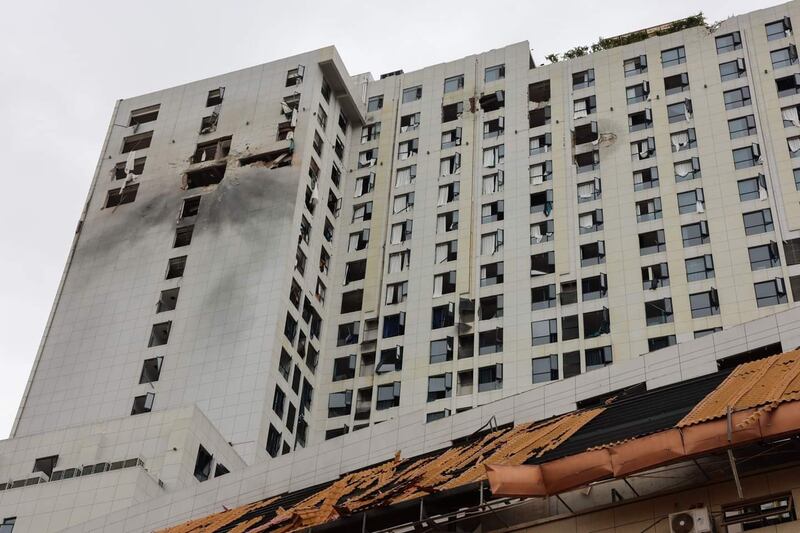A rebel army in eastern Myanmar announced a four-day ceasefire shortly after a town under its control was hit by junta airstrikes, residents said.
The Myanmar National Democratic Alliance Army, or MNDAA, captured Laukkaing, or Laukkai, town in northern Shan state on Sunday, after which the junta hit back, residents said.
A resident who wished to remain anonymous for security reasons told Radio Free Asia that a fighter jet fired at several hotels and residential areas in Laukkaing for 20 minutes, killing a civilian and wounding others.
“What we know is that the person who died was a guest staying at the Full Light International Hotel. More than 10 people were injured,” he said. “At the moment, civilians are not allowed to enter the area because it’s being cleared.”
MNDAA newspaper, The Kokang, identified the victim as a 37-year-old man named Wang. It said several other hotels were damaged in the attack.
Most Laukkaing residents are sheltering in their homes and closing their businesses for fear of more airstrikes, witnesses told RFA.

RFA phoned MNDAA spokesperson Li Kya Win and its head of external relations, Gen. Phone Win Naing, for more details on the fighting but they did not answer calls.
A reporter also attempted to contact Shan state’s junta spokesperson Khun Thein Maung and national junta spokesperson Maj. Gen. Zaw Min Tun for comment, but those calls also went unanswered.
However, a junta account on social messaging app Telegram said Laukkaing was bombed because some MNDAA leaders were living in the town.
RELATED STORIES
[ Myanmar insurgent allies capture strategic Shan state town from juntaOpens in new window ]
[ Fighting near northern Myanmar town leaves 7 dead, including 3 childrenOpens in new window ]
[ Myanmar insurgents claim post-ceasefire capture of 26 campsOpens in new window ]
The MNDAA is a member of the Three Brotherhood Alliance that launched Operation 1027 last October to seize territory from the junta. It said it had captured seven towns, including Chinshwehaw, Hseni and Kunlong since Operation 1027 began and was implementing its own administration, regional development, education and health sectors.
In January, China brokered a state-wide ceasefire between junta and alliance forces, bringing them together for talks in the Chinese city of Yunnan in May. At the time it said it was concerned fighting would affect border stability and trade between the two countries.
Three Brotherhood Alliance members the Ta'ang National Liberation Army broke the ceasefire in late June, blaming junta airstrikes for the resumption of hostilities. Since then, the alliance has captured dozens of bases across Shan state and Mandalay region.
The MNDAA said the latest ceasefire will run from Monday through Thursday, although residents said both armies have continued to fire weapons near Laukkaing. In a statement Sunday, it said the ceasefire was called as a result of China’s concerns, although it didn’t specify what those concerns were.
Since the resumption of Operation 1027, alliance forces have been trying to seize control of Lashio, the capital of northern Shan state, where fighting has raged for weeks and killed over a dozen civilians.
Political analyst Than Soe Naing said the junta attack on Laukkaing was probably in retaliation for that attack.
“[The MNDAA] took part in Operation 1027, in the second wave of the Spring Revolution. The next thing that happened was that the junta's most important town, Lashio, was targeted and attacked by four military columns,” he said. “I believe the junta bombarded Laukkaing in response to that.”
Translated by RFA Burmese. Edited by Kiana Duncan and Mike Firn.
